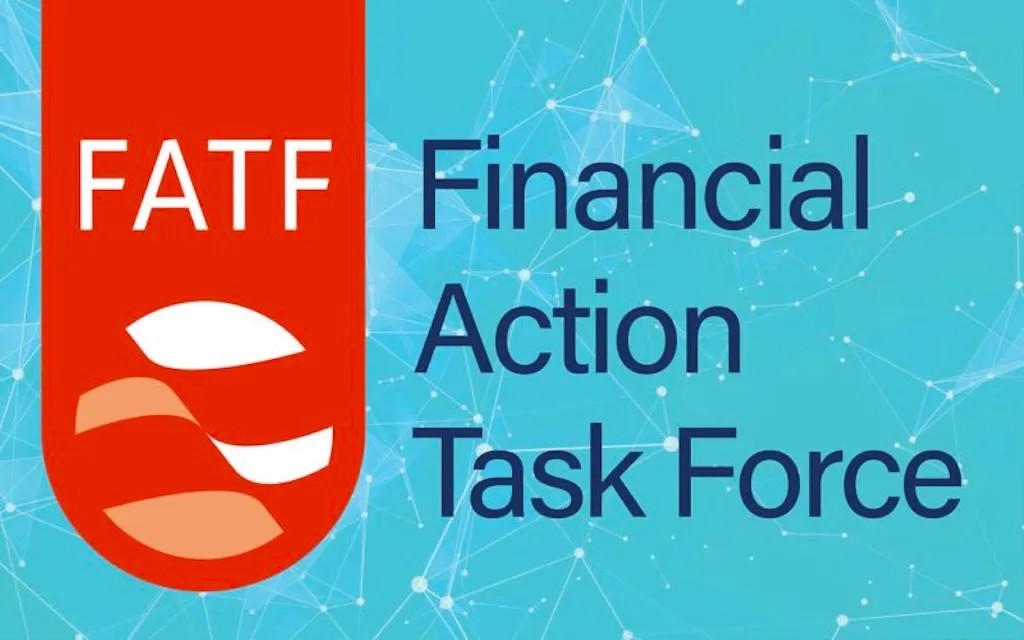Nigeria has successfully exited the Financial Action Task Force (FATF) grey list, marking a turning point in the country’s effort to rebuild investor confidence and reassert its credibility in the global financial system. The delisting, announced at the FATF Plenary in Paris, follows more than two years of sustained institutional reforms, strengthened financial oversight, and legislative action to tackle money laundering, terrorism financing, and illicit financial flows.
FATF, the intergovernmental watchdog responsible for combating money laundering and terrorism financing, had placed Nigeria on its grey list in 2021 due to strategic deficiencies in its anti-money laundering (AML) and counter-terrorist financing (CFT) regimes. The greylist identifies jurisdictions under “increased monitoring” those that do not yet meet FATF standards but are working toward compliance.
Greylisting carries significant implications for countries and their financial systems. It signals to international investors, correspondent banks, and development partners that a country poses elevated financial risks, often triggering stricter compliance checks, higher transaction costs, and slower capital flows.
Nigeria’s removal from the grey list is the culmination of a broad-based, inter-agency effort led by the Central Bank of Nigeria (CBN), the Nigerian Financial Intelligence Unit (NFIU), the Economic and Financial Crimes Commission (EFCC), and the Office of the Attorney-General of the Federation.
In a statement, the CBN had described the delisting as “a significant milestone that will strengthen investor confidence, ease cross-border transactions and restore Nigeria’s reputation as a credible financial jurisdiction.” The apex bank added that the decision would lower the cost of correspondent banking, make international trade and remittance flows smoother, and attract new foreign investment and development finance.
CBN governor, Olayemi Cardoso, praised the collective effort that led to the milestone, noting that Nigeria’s strengthened regulatory environment was central to regaining global trust. “This is an important achievement for Nigeria’s financial system. Our enhanced AML/CFT framework and closer supervisory engagement with financial institutions have helped restore confidence internationally. We remain committed to sustaining these reforms, deepening transparency, and working with domestic and international partners to prevent illicit financial flows and protect the integrity of our financial system.”
To exit the FATF grey list, Nigeria had to meet stringent technical and operational benchmarks under a tailored FATF Action Plan. According to experts familiar with the process, the FATF required the country to demonstrate not only the adoption of new laws and regulations but also their practical enforcement.
In meeting the conditions, the CBN had strengthened its supervisory regime through risk-based oversight, fit-and-proper assessments for financial sector operators, and updated AML/CFT guidelines for banks, bureaux de change, and fintechs. The apex bank also introduced enhanced monitoring and reporting across remittance channels to improve traceability of funds.
A critical component of Nigeria’s reform was improving inter-agency coordination. The CBN said it enhanced data-sharing mechanisms with the Nigeria Financial Intelligence Unit (NFIU), Economic and Financial Crimes Commission (EFCC), and other enforcement agencies to facilitate real-time intelligence and ensure stronger compliance outcomes.
The Bank also introduced market governance tools, such as the Foreign Exchange Code (FX Code) and the Electronic Foreign Exchange Matching System (EFEMS), to strengthen transparency and reduce vulnerabilities within the foreign exchange market. These steps, alongside broader legal amendments by the National Assembly and enforcement actions by law enforcement agencies, helped close gaps identified by FATF and its regional body, the Inter-Governmental Action Group Against Money Laundering in West Africa (GIABA).
Beyond regulatory measures, Nigeria enacted key legislative reforms to bolster its legal framework against financial crimes. This included amendments to the Money Laundering (Prevention and Prohibition) Act, the Terrorism (Prevention and Prohibition) Act, and the Proceeds of Crime (Recovery and Management) Act. These laws established stricter penalties, enhanced asset recovery mechanisms, and improved transparency in beneficial ownership of companies.
According to the Federal Ministry of Finance, these reforms were driven by strong political will at the highest levels of government. Coordinating Minister of the Economy, Mr. Wale Edun, described the FATF delisting as “a decisive signal to investors that Nigeria is open, compliant, and ready for deeper financial integration.”
He said the removal from the grey list demonstrates Nigeria’s “global commitment to transparency, integrity, and financial accountability,” adding that it will enhance the country’s economic resilience and competitiveness.
Following the removal from the greylist, economists and market analysts have hailed Nigeria’s exit as a catalyst for renewed investor optimism and increased capital inflows. Chief executive officer of CFG Advisory, Tilewa Adebajo, described the delisting as “a significant milestone that restores credibility to Nigeria’s financial system and sends a strong message of reform to the international community.
“Being on the grey list cast doubts on Nigeria’s financial transparency and accountability. Our removal should help improve the country’s credit rating and demonstrate that we’ve made real progress in promoting transparency and accountability,” Adebajo said.
Head of Financial Institutions Ratings at Agusto & Co, Ayokunle Olubunmi, agreed that the move could attract renewed interest from foreign portfolio investors who had previously been cautious about re-entering the Nigerian market. “Many investors had been waiting for Nigeria to be removed from the grey list before returning. This could also influence global benchmark index providers like JP Morgan to reconsider Nigeria’s re-inclusion in their investment indices.”
He added that the benefits would extend beyond capital markets. “For individuals and businesses, opening accounts abroad or making international transfers will become easier. Even visa processing and how Nigerians are treated at foreign airports could improve because part of the reputational challenges we faced stemmed from our FATF status,” he said.
The FATF delisting process is rigorous, often spanning several years. To be removed from the grey list, a country must fully implement all items in its agreed Action Plan, undergo continuous monitoring, and demonstrate sustained enforcement of AML/CFT measures.
Typically, once FATF determines that all strategic deficiencies have been addressed, it conducts an on-site visit to verify the effectiveness of reforms before approving delisting. In Nigeria’s case, the visit confirmed that reforms were not only enacted but operationally effective.
While the delisting is a major victory, authorities caution that maintaining compliance is a continuous process. The CBN emphasised that it will continue to work with AML/CFT competent authorities to ensure Nigeria remains off the grey list. “Sustaining compliance with global standards is a continuous process,” the Bank said, urging financial institutions to maintain strong governance and internal controls.
The apex bank also noted that the FATF’s decision aligns with other positive international assessments, including improved external balances and greater policy transparency highlighted in the IMF’s 2025 Article IV consultation.
Analysts believe the FATF decision could trigger tangible benefits across the economy, from lower compliance costs and reduced transaction frictions to improved trade finance and diaspora remittances. As the CBN noted, these gains should translate into smoother trade settlements, quicker remittance inflows, and more predictable access to foreign exchange.
For Nigeria, leaving the FATF grey list represents more than just regulatory compliance, it signals a restored reputation, renewed investor trust, and the potential for deeper financial integration. It is, as Finance Minister Wale Edun put it, “a declaration that Nigeria is back on track, building an economy founded on transparency, accountability, and global credibility.”





